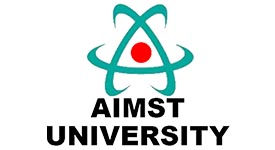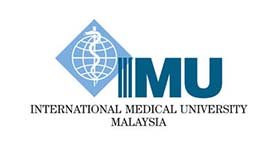Overview of Master of Science in Clinical Pharmacy Practice in UCSI University
Malaysia
If you are a pharmacist working in primary care, hospital or the community pharmacy and wish to further develop your skills and knowledge in patient care, then the Master of Clinical Pharmacy Practice will be of interest to you. This programmes aims to nurture pharmacists with the practice of pharmaceutical care as well as the skills required to deliver patient care safely and effectively.
Suiting to the diverse career path in Pharmacy Practice, the Master of Clinical Pharmacy Practice is offered in two professional pathways: 1) Hospital Pharmacy Pathway or 2) Community Pharmacy Pathway. These pathways provide the pharmacists with the skills to lead pharmaceutical pharmacy practice projects and be in the management positions in their place of practice. The healthcare community, including the patients will benefit from the advanced knowledge and skills of these practicing pharmacists.
PROGRAMME STRUCTURE
HOSPITAL PHARMACY PATHWAY
Semester 1
- Hospital and Community Pharmacy
- Evidence-Based Medicine
- Advanced Therapeutics in Internal Medicine
- Research Methodology
Semester 2
- Biostatistics and Experimental Design
- Advanced Therapeutics in Infectious Diseases
- Advanced Therapeutics in Cancer Care
- Advanced Therapeutics in Paediatrics
Semester 3
- Internal Medicine Clerkship
- Critical Care Clerkship
- Nephrology Clerkship
- Paediatric Clerkship
- Infectious Disease Clerkship
- Psychiatric Clerkship
- Oncology Clerkship
- Research Project
COMMUNITY PHARMACY PATHWAY
Semester 1
- Hospital and Community Pharmacy
- Evidence-Based Medicine
- Advanced Therapeutics in Internal Medicine
- Research Methodology
Semester 2
- Biostatistics and Experimental Design
- Advanced Therapeutics in Infectious Diseases
- Medicine Management in Community Pharmacy
- Public Health Pharmacy
Semester 3
- Community Pharmacy Clerkship
- Ambulatory Care Clerkship
- Independent Pharmacy Clerkship
- Research Project
*Option 1: Any THREE (3) clerkships
*Option 2: Any ONE (1) clerkship + Research Project
*Clerkships offered each semester will be subjected to arrangement and availability of placement
Hospital and Community Pharmacy
This course will help the pharmacist to apply the principles of hospital and community pharmacy management into patient care. Student will be exposed to updates in the current healthcare system and explore new roles and opportunities for pharmacists in hospital and community care settings. The course emphasises patient-focused care at the hospital and community settings.
Evidence-Based Medicine
This course equips the pharmacists with the advanced skills in evidence- based medicine for the application to the pharmacotherapy and pharmaceutical care of patients. Evidence-based medicine uses the best evidence available from systematic research, in consultation with the patients, to guide decision making in practice.
Advanced Therapeutics in Internal Medicine
The content of the course includes the application of pharmacotherapy of common diseases in internal medicine, including the chronic diseases. Diseases of various systems, including cardiovascular, endocrine, gastrointestinal, musculoskeletal, nervous system, renal, haematology and pulmonary systems are included. This course emphasises a student-centred approach with case-based learning and life-long learning skills through evidence-based medicine.
Advanced Therapeutics in Infectious Diseases
The content of the course includes pharmacotherapy of infectious diseases of the upper respiratory tract infections, lower respiratory tract infections, tuberculosis, urinary tract infections, pharmacotherapy of human immunodeficiency virus infection, central nervous system infections, infective endocarditis, sepsis and septic shock, fungal, infections, viral infections, infectious diarrhoea and bone and joint infections. New emerging infectious diseases will also be covered in this course to put importance to its management.
Advanced Therapeutics in Cancer Care
The content of this course includes advanced pharmacotherapy in various oncological conditions and its treatment complications. Oncology is a specialised field and requires the pharmacists to work in a healthcare team to provide “safe” and “effective” treatment to the patients. Skills in identifying and group discussion on cases in making collective decisions will be emphasise in the small group learning.
Advanced Therapeutics in Paediatrics
The course aims to equip the pharmacists with specialist knowledge and skills in paediatric and geriatric pharmacy practice and the management of major diseases and syndromes affecting those population and patient-monitoring factors that should be considered when providing pharmaceutical care to them.
Medicine Management in Community Pharmacy
This course equips community pharmacists with an advanced understanding of implementing medicine management in community pharmacy, including the evaluation methods of their services. Pharmaceutical care of various ailments and diseases in the community pharmacy will also be discussed and students are required to present in case studies.
Public Health Pharmacy
The role of the pharmacist has expanded from the traditional role of dispensing medications to that of an integral part of the healthcare team, with an expertise in patient drug therapy. In response to a growing demand for pharmacists who are knowledgeable in both pharmacy and population-based health care, there is a pressing need for future pharmacists to understand the broader concept of public health, which focuses on improving health at a population level.
ENTRY REQUIREMENTS
ACADEMIC REQUIREMENTS
BSc in Pharmacy or B. Pharm (Hons) degree.
Other graduates are not accepted for admission.
Minimum CGPA of 2.5 or equivalent
ENGLISH LANGUAGE REQUIREMENTS
For Local & International Students
154
Band 5.0
-
Cambridge English Qualifications and Tests
154
42
47
Band 3
CAREER PROSPECTS
The comprehensive coverage of pharmacy practice and the advanced pharmacotherapy components pave the way for careers in (i) Hospital pharmacy practice, (ii) Community pharmacy practice, (iii) Academia and (iv) Research.


















